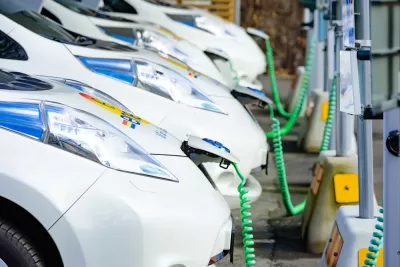Germany has approved legislation calling for the end of the end of internal combustion engine by 2030. Whether the rest of Europe follows Germany's lead is to be determined.

"Germany’s Spiegel Magazin [German] reported this morning that the country’s top legislative body was able to reach a bi-partisan agreement that hopes to allow only zero-emission vehicles on EU roads in 14 years," according to an article by Rhett Jones.
Betel Schmitt also picks up on the news for Forbes, focusing on the likelihood that the German regulations could be adopted in the remainder of the European Union. "On its own, the resolution has no legislative effect. EU type approval is regulated on the EU level. However, German regulations traditionally have shaped EU and UNECE regulations," writes Schmitt.
Schmitt also reports that the resolution "calls on the EU Commission to 'review the current practices of taxation and dues with regard to a stimulation of emission-free mobility.'" Any taxation that could arise as a result of this review, could further hasten the demise of the internal combustion engine.
FULL STORY: Germany's Bundesrat Resolves End Of Internal Combustion Engine

Maui's Vacation Rental Debate Turns Ugly
Verbal attacks, misinformation campaigns and fistfights plague a high-stakes debate to convert thousands of vacation rentals into long-term housing.

Planetizen Federal Action Tracker
A weekly monitor of how Trump’s orders and actions are impacting planners and planning in America.

Chicago’s Ghost Rails
Just beneath the surface of the modern city lie the remnants of its expansive early 20th-century streetcar system.

Bend, Oregon Zoning Reforms Prioritize Small-Scale Housing
The city altered its zoning code to allow multi-family housing and eliminated parking mandates citywide.

Amtrak Cutting Jobs, Funding to High-Speed Rail
The agency plans to cut 10 percent of its workforce and has confirmed it will not fund new high-speed rail projects.

LA Denies Basic Services to Unhoused Residents
The city has repeatedly failed to respond to requests for trash pickup at encampment sites, and eliminated a program that provided mobile showers and toilets.
Urban Design for Planners 1: Software Tools
This six-course series explores essential urban design concepts using open source software and equips planners with the tools they need to participate fully in the urban design process.
Planning for Universal Design
Learn the tools for implementing Universal Design in planning regulations.
planning NEXT
Appalachian Highlands Housing Partners
Mpact (founded as Rail~Volution)
City of Camden Redevelopment Agency
City of Astoria
City of Portland
City of Laramie




























